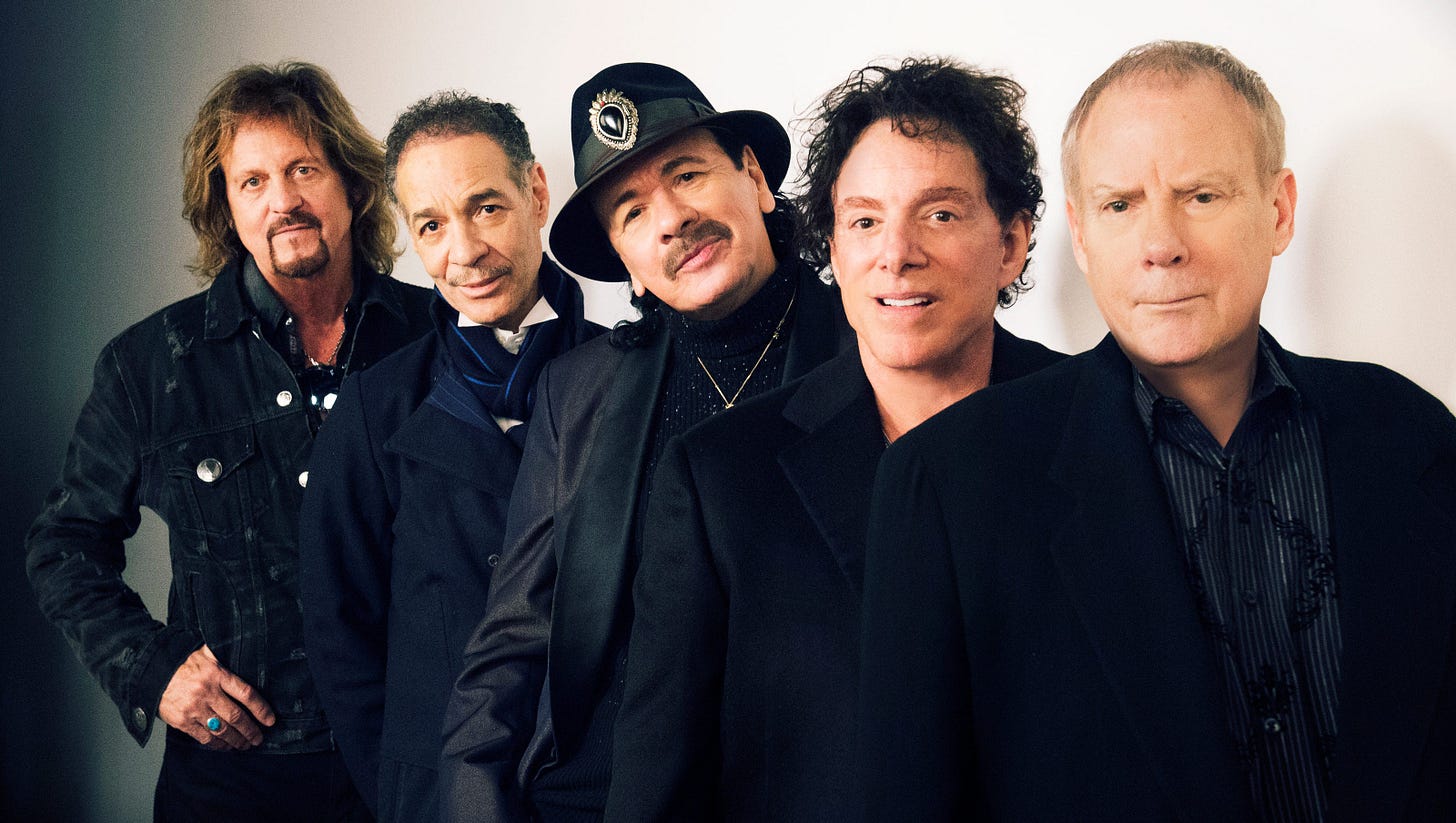Santana
Santana, led by the virtuoso guitarist Carlos Santana, is a pioneering band that blends rock, Latin American, and jazz fusion.
Their distinctive sound, characterized by Carlos Santana's melodic, blues-based guitar lines set against Latin and African rhythms featuring percussion instruments such as timbales and congas not generally heard in rock music, has positioned them as one of the most popular and influential bands from the late 1960s to the present day.
Formation and Early Years
The band was formed in San Francisco in 1966. Carlos Santana, the band's namesake and driving force, was born in Jalisco, Mexico, and moved to San Francisco in the early 1960s. Influenced by a variety of genres and guitarists like B.B. King and John Lee Hooker, Santana was determined to create a sound that merged his influences with his own unique style. The original lineup included Carlos Santana (guitar), Gregg Rolie (keyboards, lead vocals), David Brown (bass), Michael Shrieve (drums), Michael Carabello (congas, percussion), and José "Chepito" Areas (timbales, percussion).
Breakthrough and Woodstock
Santana's big break came with their performance at the Woodstock Music and Art Fair in 1969, even before the release of their first album. Their electrifying performance, particularly the instrumental "Soul Sacrifice," showcased the band's energy and musical prowess, making them instant stars. Later that year, they released their debut album, "Santana," which included hits like "Evil Ways" and laid the groundwork for their unique blend of rock, Latin, and jazz influences.
Success in the 1970s
The band's next albums, "Abraxas" (1970) and "Santana III" (1971), solidified their success, featuring classics like "Black Magic Woman," "Oye Como Va," and "No One to Depend On." These albums showcased the band's ability to blend rock and Latin music seamlessly, with Carlos Santana's guitar work receiving widespread acclaim.
Lineup Changes and Evolution
The early 1970s saw significant changes in the band's lineup and musical direction. Gregg Rolie and Neal Schon (who had joined as a second guitarist) left to form Journey, and Carlos Santana began exploring new musical paths, including collaborations with artists like John McLaughlin and Alice Coltrane, delving deeper into jazz fusion.
"Supernatural" and Resurgence
After a period of diminished commercial success, Santana made a monumental comeback with the album "Supernatural" in 1999. The album, featuring collaborations with contemporary artists like Rob Thomas ("Smooth"), Wyclef Jean, and Lauryn Hill, won nine Grammy Awards, including Album of the Year, and revitalized Santana's career, introducing their music to a new generation.
Legacy and Influence
Santana has continued to release albums and tour worldwide, with Carlos Santana remaining the only constant member. The band's influence on rock, Latin music, and jazz fusion is immense, bridging cultural and musical gaps and garnering a multi-generational fan base. Santana's guitar style, characterized by its emotional intensity and distinctive tone, has inspired countless guitarists across various genres.
Carlos Santana's spiritual outlook and commitment to humanitarian causes have also permeated the band's ethos, making Santana not just a musical entity but a cultural and spiritual touchstone. With a career spanning over five decades, Santana's legacy is marked by innovation, resilience, and the power of merging diverse musical landscapes into a harmonious and enduring sound.
